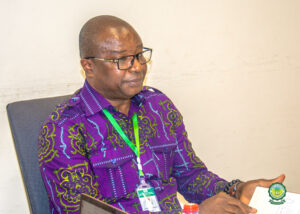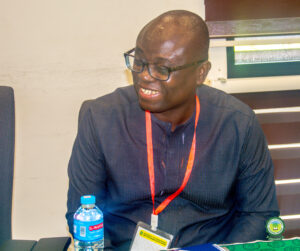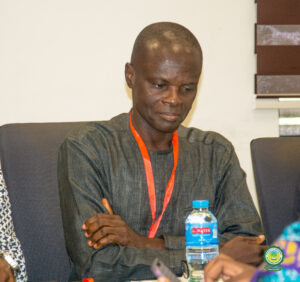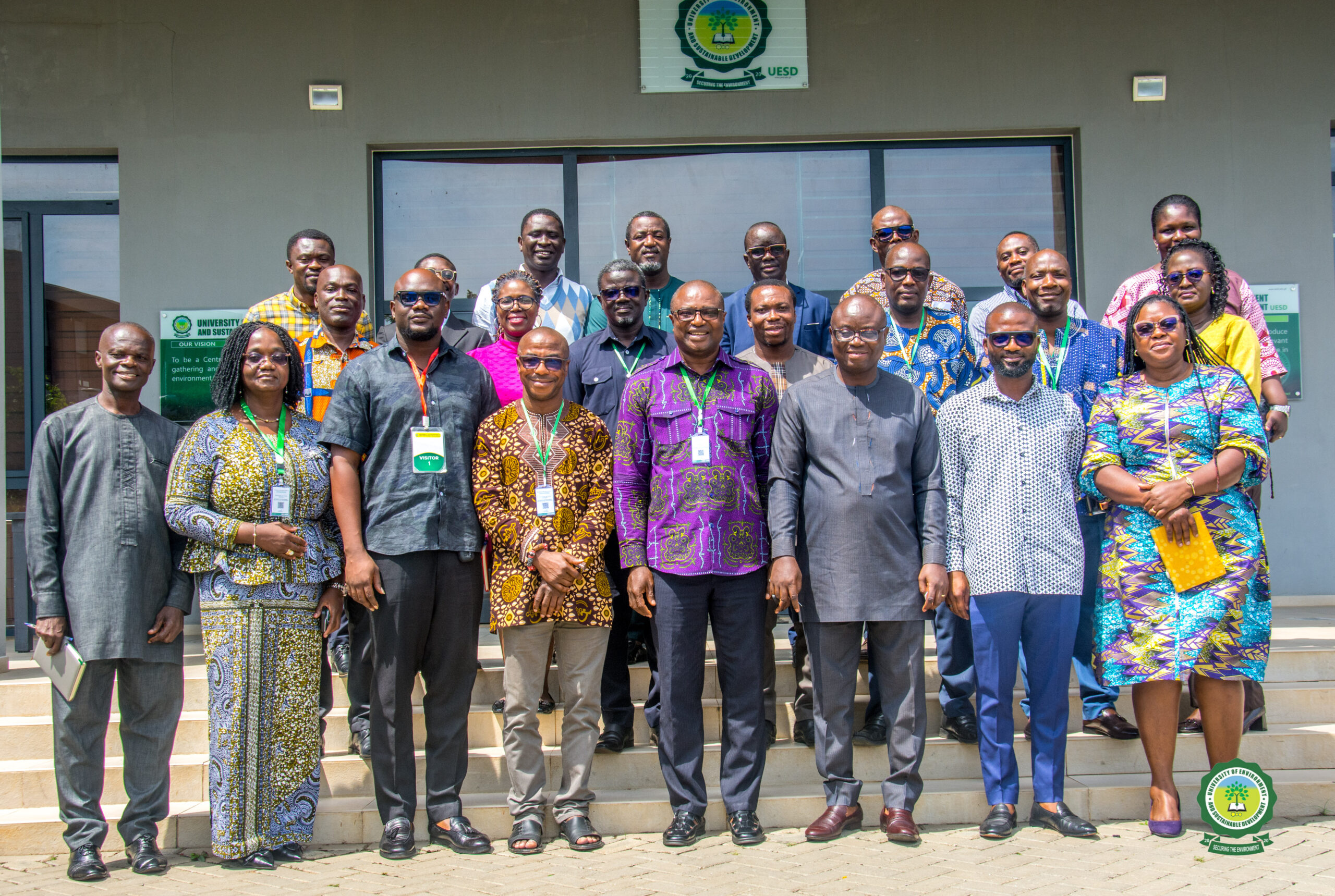A delegation from the United Nations Educational, Scientific and Cultural Organization (UNESCO) has paid a working visit to the University of Environment and Sustainable Development (UESD), Somanya, Eastern Region as part of its engagement with selected institutions for the Better Education for Africa’s Rise (BEAR III) project. The visit forms part of a strategic partnership to boost Technical and Vocational Education and Training (TVET) in the agriculture sector through curriculum development, capacity building, and equipment support.
Speaking at a meeting with the UNESCO team at the Council Chamber on campus, the Vice-Chancellor, Prof. Eric Nyarko-Sampson, highlighted the University’s short but impactful journey since its inception. “UESD is a young university. This August marks our fifth anniversary. We started with two schools—School of Sustainable Development and School of Natural and Environmental Sciences—and currently run over 30 GTEC-accredited undergraduate and postgraduate programs,” he said.

Prof. Nyarko-Sampson emphasised that UESD’s academic focus aligns with national development priorities, particularly in sustainable development, applied sciences, and agriculture. He also introduced ongoing initiatives such as the establishment of the School of Agribusiness and Entrepreneurship Development and expansion into climate-smart agriculture, aquaculture, and biotechnology. He welcomed the BEAR III partnership, underscoring UESD’s readiness to contribute to curriculum development and TVET advancement.
Head of the Education Section, UNESCO Office, Ghana, Mr. Prosper K. Nyavor, provided insights into the broader objectives of the BEAR III project, funded by the Korean government. He explained that UNESCO, as a specialised UN agency, focuses on setting international standards in education, science, culture, communication, and information.

“Our aim with BEAR III is to address skill gaps in the TVET sector, especially in agriculture. Ghana’s agribusiness potential remains largely untapped by the youth. This project is designed to make agritech attractive and practical through improved training programmes and partnerships,” Mr. Nyavor explained. He said the Project
He said, UESD is one of eight institutions selected nationwide to benefit from the project, which will be implemented in three key areas: curriculum development, capacity building, and provision of ICT tools and training equipment. “We consulted widely, and UESD stood out for its infrastructure, academic alignment, and potential for impactful collaboration,” he added.

The Project Coordinator of the BEAR III Project, UNESCO Office, Accra, Mr. Michael Boateng, outlined six priority areas for the Project; machinery operation and maintenance, agribusiness and entrepreneurship, post-harvest management and value addition, fabrication of agriculture tools and equipment, environment and climate smart agriculture, and digital agric and precision farming. The selected curricula will be developed using a competency-based approach in collaboration with relevant TVET regulatory bodies.
Mr. Boateng explained that the project, is working with both national and international partners, including CRIVET (Korean Research Institute of Vocational Education and Training) and UNIBOK (University Center for Vocational Education and Training in Germany), to support faculty development, exchange programs, and practical training.
He noted that UESD’s participation in the project would also include financial grants to support training and internships for students through workplace experience programmes in partnership with private sector entities. Importantly, the training programmes will lead to certificates of competency, rather than full academic qualifications, targeting immediate employability and skill application.
The Director for Standards, Curriculum Development and Enforcement (SCD &E), Commission for TVET, Accra Dr. Peter Boahin underscored the need for UESD to align its academic offerings with competency-based training (CBT) frameworks and industry demands.

He highlighted a critical step in the collaboration: the University must provide a clear list of its academic programmes—not just individual courses. “Courses are derived from programs, but under the CBT approach, what we require are industry-led occupational standards and demand-driven curricula,” he explained. He noted that before any curriculum is developed or revised for technical and vocational education and training (TVET), a labour market survey must be conducted. This survey helps to identify emerging skills, future labour market needs, and existing skills gaps.
He further indicated that if existing programmes at UESD do not align with current industry standards, they may need to be reviewed against the Commission’s template. In some cases, entirely new curricula may need to be developed from scratch to ensure relevance and quality. This guidance is part of a broader effort to ensure that the BEAR III project’s interventions, particularly in the areas of agri-tech, entrepreneurship, and machinery operation, are aligned with Ghana’s workforce development goals and the future of work.
Present at the meeting was the Pro-Vice-Chancellor, Prof. Edward Wiafe Debrah, the Registrar, Mrs. Mary Abena Agyepong, Heads of Departments, Faculty Officers and some Unit heads. The National Coordinator for ATVET, Ghana TVET Service, Accra Mr. Jasper Akafo was part of the UNESCO team.
By: Barbara M. Yakubu

